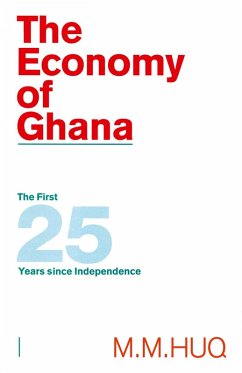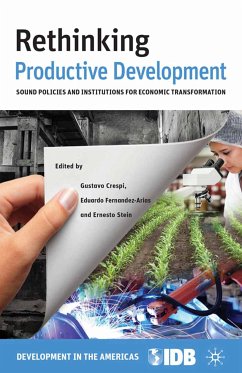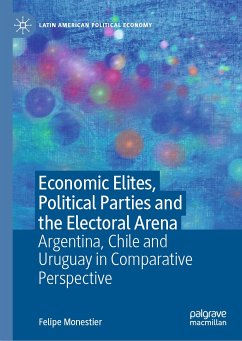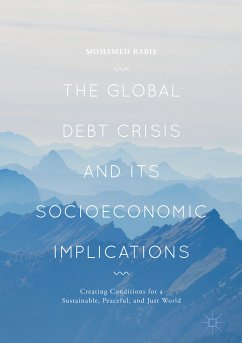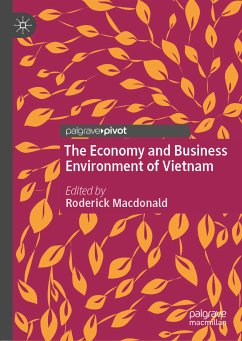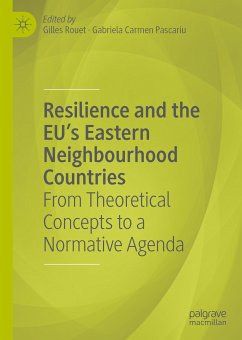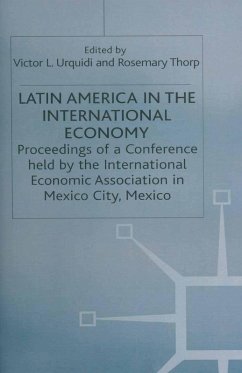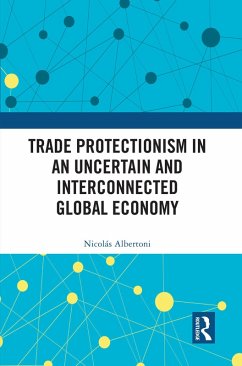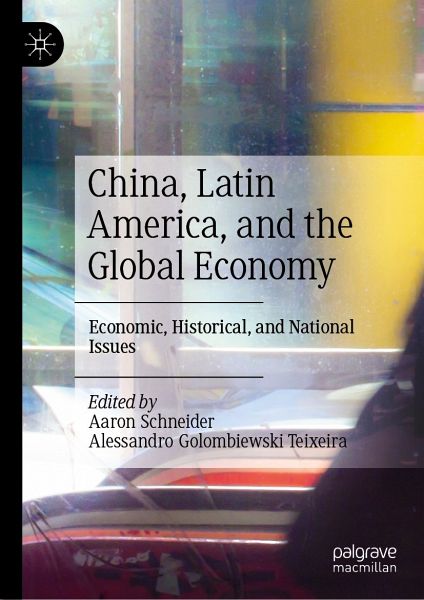
China, Latin America, and the Global Economy (eBook, PDF)
Economic, Historical, and National Issues
Redaktion: Schneider, Aaron; Teixeira, Alessandro Golombiewski
Versandkostenfrei!
Sofort per Download lieferbar
128,95 €
inkl. MwSt.
Weitere Ausgaben:

PAYBACK Punkte
64 °P sammeln!
This book seeks offers accounts of the ways in which Chinese engagement with Latin America will shape the regional and global order with impacts for development, peace, and equity. It also pays close attention to the traditional role played by the USA in the region, how China differs, and the increasingly triangular relationship between the USA, China, and Latin American countries. The contributors analyze various economic dimensions, including trade, infrastructure, and finance, and the historical, sectoral, regional, and national stories seek to change the narrative on China-Latin American r...
This book seeks offers accounts of the ways in which Chinese engagement with Latin America will shape the regional and global order with impacts for development, peace, and equity. It also pays close attention to the traditional role played by the USA in the region, how China differs, and the increasingly triangular relationship between the USA, China, and Latin American countries. The contributors analyze various economic dimensions, including trade, infrastructure, and finance, and the historical, sectoral, regional, and national stories seek to change the narrative on China-Latin American relations. In particular, the book argues that there are opportunities for international cooperation to secure gains in the region, but only if the US and China alter their behavior and Latin American countries work collectively and in more coordinated fashion. Together, the chapters offer coherent social science analysis, policy frameworks, and empirical detail to understand and navigate increasedChinese engagement with Latin America.
Dieser Download kann aus rechtlichen Gründen nur mit Rechnungsadresse in A, B, BG, CY, CZ, D, DK, EW, E, FIN, F, GR, HR, H, IRL, I, LT, L, LR, M, NL, PL, P, R, S, SLO, SK ausgeliefert werden.



